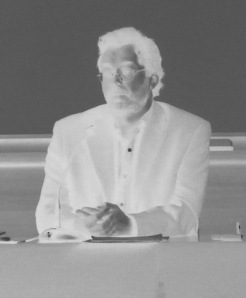In my previous post, I explained that the wertkritik school has come to a rather startling conclusion:
“The abolition of value does not equal social emancipation”.
The argument Postone, Kurz, Flatschart and others make with regard to the critique of value is not very complicated: Materially, socially necessary labor time can be reduced without a corresponding reduction in the quantity of labor actually expended.
 But, can the material need for labor be reduced to zero without the end of wage labor itself? For some ungodly reason, Postone and Kurz take the anarchist position that even in the absence of any material need for labor at all, wage labor can still exist. Okay, fine. Let’s leave that to one side for now.
But, can the material need for labor be reduced to zero without the end of wage labor itself? For some ungodly reason, Postone and Kurz take the anarchist position that even in the absence of any material need for labor at all, wage labor can still exist. Okay, fine. Let’s leave that to one side for now.
This means, a number of different theorists, employing various sorts of critical analyses, have all come to the same conclusion, which has been presented in the form of a non-identity: the abolition of value is not the same as social emancipation.
To really understand the significance of the wertkritik school’s argument, it could better be stated as follows: Not all the wage labor we perform is materially necessary. The reduction of the material need for wage labor does not, of itself, lead to a reduction of the amount of wage labor actually performed. So, there is a very high probability that most of the labor we perform everyday is entirely superfluous to any need.
At this point, the wertkritik scholar simply stands there with a grim look on his face and declares solemnly: “The call for the abolition of labor does not have immediate ramifications for Marxist politics.”
Now you have to realize what wertkritik has stated: the fact that you get up every morning to an alarm clock and shuffle off to work in some disgusting cubicle for eight or ten hours a day has no ramifications for Marxist politics! And, the wertkritik school theorist proclaims, this is true even if the work you are doing is completely fucking unnecessary to you or anyone else!
Do you think they ever stopped to ask themselves: “Well, this very well might have no impact on Marxist politics, but what about the implications for the person actually performing the useless labor?” Do the rest of us have a fucking life, dreams, hopes and wants of our own, or are we just mindless fucking tools for the accumulation of capital? Apparently, it never occurs to the wertkritik school that their work might have some passing significance for cubicle jockeys watching the clock. It never occurs to these idiots that the dead space between the time you park your car in the company lot and the time you start it again to go home might be filled with something other than mindless production of surplus value.
Something, like, for instance, A FUCKING LIFE!
Instead, all we get from these asshole academics are indecipherable phrases like “negative critique”, or “the abstract and fetishized character of modern domination”.
You would think one of these assholes might just pick up some data from the fascist state and try to determine the extent to which material socially necessary labor has been eliminated and compare this with the amount of labor people are actually doing. But — NO! — that would be too much like relevant fucking work. And the last thing we want is for Marxism to be relevant to any-fucking-body’s life. Let’s just keep it as it is: an irrelevant circle-jerk among folks with eight semesters of fucking graduate-level Hegelian philosophy.
So, Wertkritik really does not have a complicated argument: it states most of the work we do is absolutely unnecessary — superfluous. But it states it in such dense and arcane language that, apparently, the message doesn’t even penetrate the brains of the handful who actually understand it.
If these fuckers can’t figure out what their theoretical effort has produced, who the fuck else is going to?
We can.
We really don’t need those assholes to pick their noses out of a fucking book long enough to understand what they are saying. Once we grasp their essential argument, it is possible to verify it without much difficulty.
And, once we do this, we will see that Elmar Flatschart is an idiot and that wertkritik has profound implications for Marxist politics.
So, let’s start with the numbers — and there are a lot of them.
*** Continue reading “Can We Completely Abolish Labor, Right Now?”
 I might turn out to be wrong, but based on my reading of Anselm Jappe’s “Towards a History of the Critique of Value”, I think wertkritik has encountered its limits. In the essay, Jappe shows that all you can get from wertkritik is an ever longer laundry list of dumb shit that will go when labor goes. This effort played a crucial role historically by challenging Marxism in all of its varieties, but it cannot do what we need right now — indicate a path forward.
I might turn out to be wrong, but based on my reading of Anselm Jappe’s “Towards a History of the Critique of Value”, I think wertkritik has encountered its limits. In the essay, Jappe shows that all you can get from wertkritik is an ever longer laundry list of dumb shit that will go when labor goes. This effort played a crucial role historically by challenging Marxism in all of its varieties, but it cannot do what we need right now — indicate a path forward.


